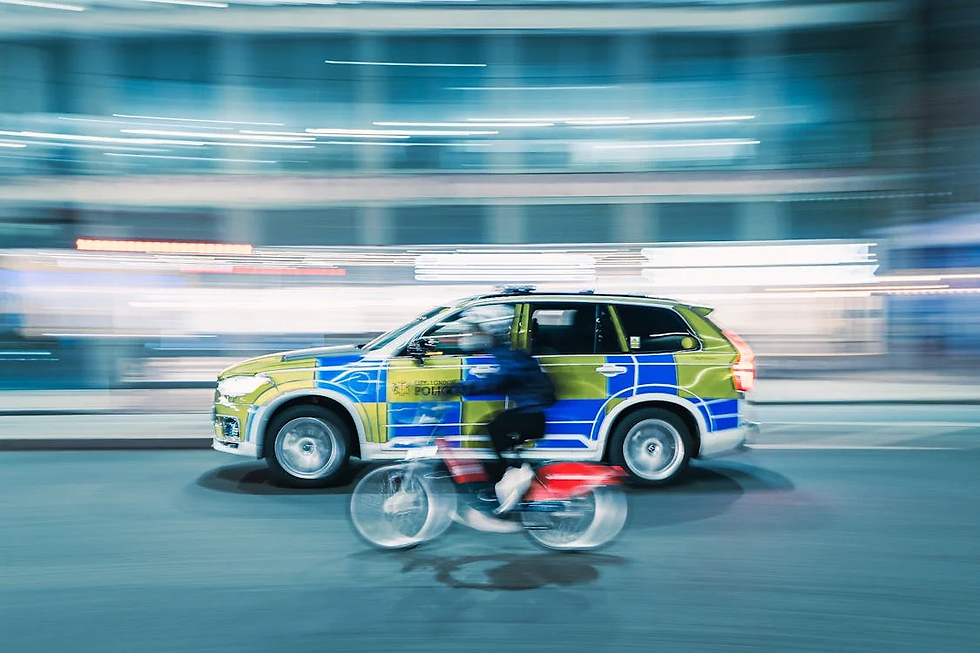#KillTheBill Protests: An Update
- Hannah McGaw

- Mar 31, 2021
- 3 min read
Updated: Dec 23, 2024
The UK government’s Police, Crime, Sentencing and Courts Bill has triggered a series of demonstrations in cities around the UK. The protesters are demanding a rethinking of the controversially broad crime bill that would give the police force more power to deal with nonviolent and violent demonstrations.
In recent weeks, following the kidnap and murder of Sarah Everard, the bill has come under intense criticism from the public; especially when a peaceful, subsequent vigil to honour her was broken up by the police using arguably extreme methods. Officers were widely criticised for disturbing the event, which was deemed illegal because of UK coronavirus restrictions (such as gathering en masse). On social media, images quickly spread showing the police halting speeches, and arresting groups of women denouncing gender-based violence. An independent investigation has been launched into the conduct of the police, though it has since found that the Metropolitan Police acted "appropriately" at the vigil for Sarah Everard, and that the force was "justified", according to a police watchdog.

The police's physical response to the vigil triggered a movement against the policing bill. Since the vigil and the debate in Parliament, the government maintains that the bill provides better policing and community protection. The home secretary, Priti Patel, said last week that there was "a balance to be struck between the rights of the protester and the rights of individuals to go about their daily lives." However, opposition lawmakers and human rights groups have claimed that the bill would give the police "potentially problematic" powers.
Several protests have been held nationwide, since the vigil for Sarah Everard in London. In largely peaceful demonstrations, hundreds gathered outside government buildings, and crowds paraded from Parliament Square to police headquarters. Other protests were held nationally last weekend.
On Sunday 21st March, one protest in Bristol turned into a riot, when a small group set fire to police vehicles, smashed shop windows, and clashed with officers. Two police officers were hospitalised, and at least eighteen more reportedly suffered minor injuries, yet only seven arrests were made. The protest saw thousands of people march through the streets of Bristol, and it was only as the evening progressed that the scene began to turn violent.
On Tuesday 23rd March, a second protest was held on College Green in Bristol, where protesters set up an encampment. As the police dispersed the crowd, fourteen people were arrested. This was followed by a third demonstration on Friday 26th March, where ten protesters were apprehended. Police declared that "eggs, bricks, and glass bottles were thrown at officers." Again, until around ten o’clock, the protest had been largely peaceful; protesters simply sat down in Bridewell Street to signify a united opposition to the proposed bill. In more recent Bristol protests, protesters and first responders alike have claimed that the police officers used their shields to injure the protesters. According to The Guardian, first-aiders treated at least five people with injuries to their heads, that they claimed were "consistent with the edges of rectangular riot shields." ITV reported that "two further #killthebill protests are expected to take place in Bristol this week after three demonstrations in seven days." Activists gathered on Tuesday the 30th of March, and are expected to do so again on Saturday (4th April) to protest the government’s Police, Crime, Sentencing and Courts Bill.
The Avon and Somerset Police Force has warned Kill the Bill protesters against any further violence ahead of future demonstrations. Following a change in Covid-19 lockdown rules which came into force on Monday the 29th of March, protesting is once again legal in England, though organisers are required to submit risk assessments and ensure that precautionary measures to combat the spread of coronavirus take place.
Protests have taken place in other cities across the country, with one in Manchester being described as "largely peaceful" by the Greater Manchester Police. However, the police also said that "significant disruption" was induced by "the protesters sitting on the Metrolink line in St Peter's Square." Demonstrators marched through Manchester’s city centre during the afternoon to protest a specific clause of the Police and Crime Bill - a clause which would ban residing on any private/public land in vehicles without permission. The Greater Manchester Police said officers gave "repeated warnings" to people who were obstructing the tram lines, before making eighteen arrests.
Crowds gathered for further demonstrations in towns and cities such as Bath, Falmouth, Nottingham, and Sheffield. In Brighton, hundreds of people gathered in front of the city's police headquarters to protest the bill. In Cambridge, around one hundred protesters gathered outside the Parkside police station, with some climbing on top of the building's entrance lobby.

_edited.png)


Comments